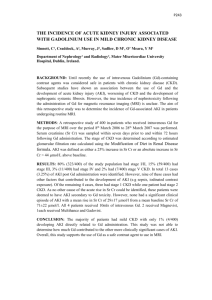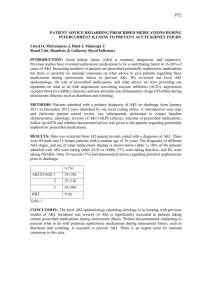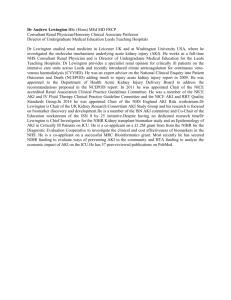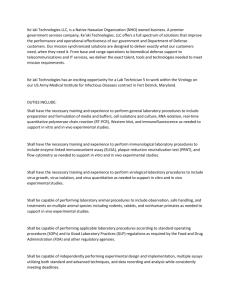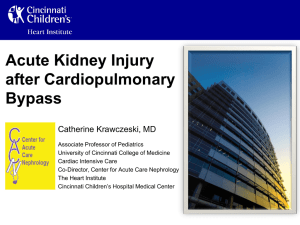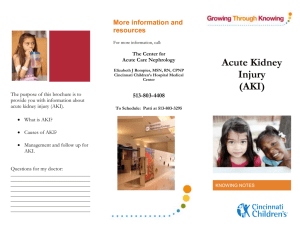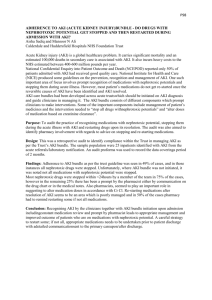O9 Patients` Perceptions And Awareness About Medicines
advertisement
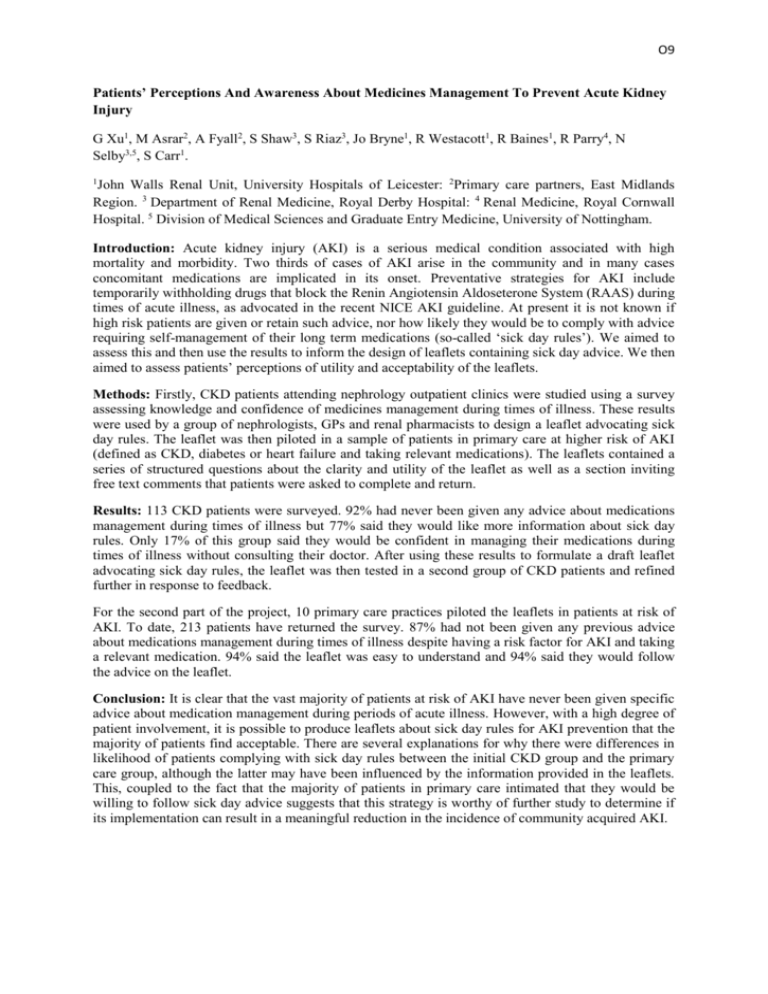
O9 Patients’ Perceptions And Awareness About Medicines Management To Prevent Acute Kidney Injury G Xu1, M Asrar2, A Fyall2, S Shaw3, S Riaz3, Jo Bryne1, R Westacott1, R Baines1, R Parry4, N Selby3,5, S Carr1. 1 John Walls Renal Unit, University Hospitals of Leicester: 2Primary care partners, East Midlands Region. 3 Department of Renal Medicine, Royal Derby Hospital: 4 Renal Medicine, Royal Cornwall Hospital. 5 Division of Medical Sciences and Graduate Entry Medicine, University of Nottingham. Introduction: Acute kidney injury (AKI) is a serious medical condition associated with high mortality and morbidity. Two thirds of cases of AKI arise in the community and in many cases concomitant medications are implicated in its onset. Preventative strategies for AKI include temporarily withholding drugs that block the Renin Angiotensin Aldoseterone System (RAAS) during times of acute illness, as advocated in the recent NICE AKI guideline. At present it is not known if high risk patients are given or retain such advice, nor how likely they would be to comply with advice requiring self-management of their long term medications (so-called ‘sick day rules’). We aimed to assess this and then use the results to inform the design of leaflets containing sick day advice. We then aimed to assess patients’ perceptions of utility and acceptability of the leaflets. Methods: Firstly, CKD patients attending nephrology outpatient clinics were studied using a survey assessing knowledge and confidence of medicines management during times of illness. These results were used by a group of nephrologists, GPs and renal pharmacists to design a leaflet advocating sick day rules. The leaflet was then piloted in a sample of patients in primary care at higher risk of AKI (defined as CKD, diabetes or heart failure and taking relevant medications). The leaflets contained a series of structured questions about the clarity and utility of the leaflet as well as a section inviting free text comments that patients were asked to complete and return. Results: 113 CKD patients were surveyed. 92% had never been given any advice about medications management during times of illness but 77% said they would like more information about sick day rules. Only 17% of this group said they would be confident in managing their medications during times of illness without consulting their doctor. After using these results to formulate a draft leaflet advocating sick day rules, the leaflet was then tested in a second group of CKD patients and refined further in response to feedback. For the second part of the project, 10 primary care practices piloted the leaflets in patients at risk of AKI. To date, 213 patients have returned the survey. 87% had not been given any previous advice about medications management during times of illness despite having a risk factor for AKI and taking a relevant medication. 94% said the leaflet was easy to understand and 94% said they would follow the advice on the leaflet. Conclusion: It is clear that the vast majority of patients at risk of AKI have never been given specific advice about medication management during periods of acute illness. However, with a high degree of patient involvement, it is possible to produce leaflets about sick day rules for AKI prevention that the majority of patients find acceptable. There are several explanations for why there were differences in likelihood of patients complying with sick day rules between the initial CKD group and the primary care group, although the latter may have been influenced by the information provided in the leaflets. This, coupled to the fact that the majority of patients in primary care intimated that they would be willing to follow sick day advice suggests that this strategy is worthy of further study to determine if its implementation can result in a meaningful reduction in the incidence of community acquired AKI.
